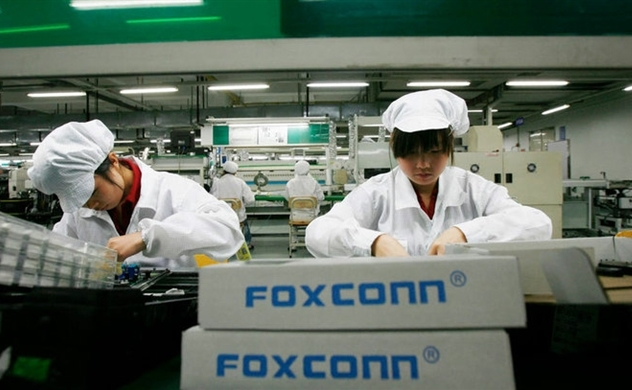Koreans, Chinese netizens online showdown over Chinese-style Kimchi winning international certificate
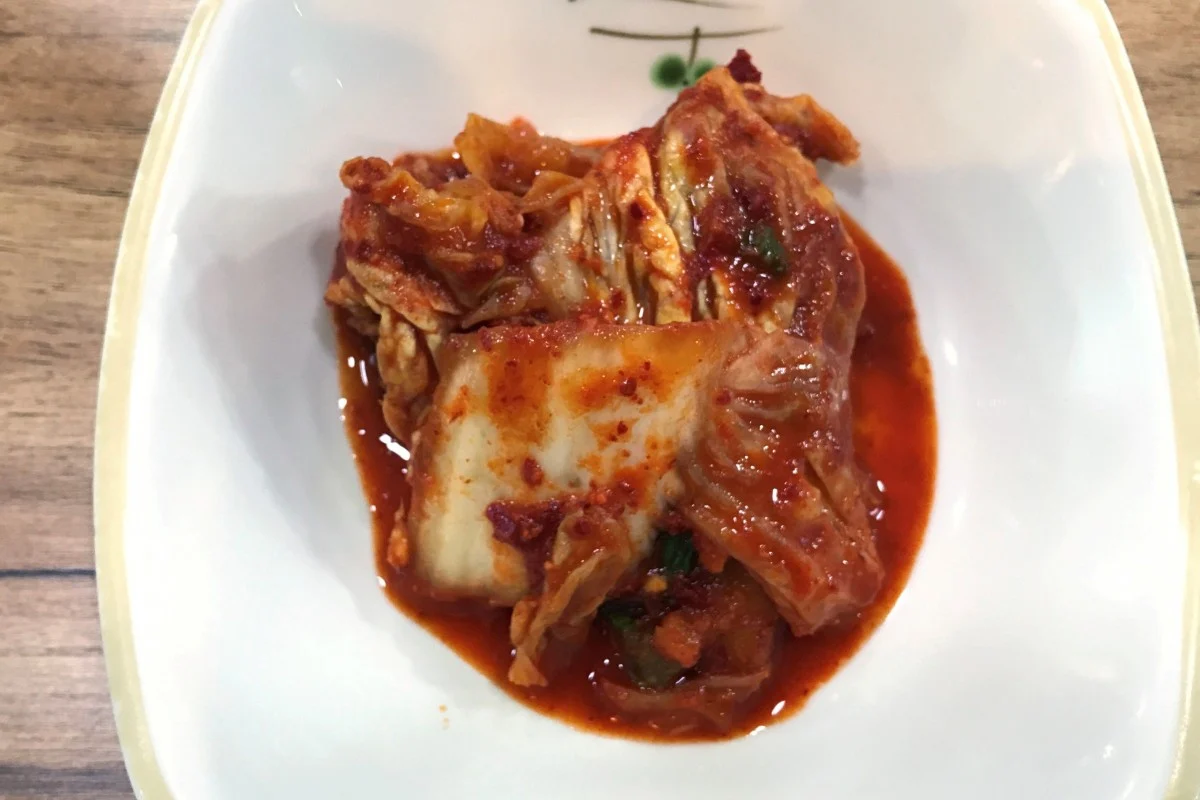 |
| A plate with traditional Korean kimchi – made of cabbages seasoned with spices – is seen on a table of a restaurant in Seoul. Photo: Reuters |
China’s efforts to win an international certification for Pao Cai, a pickled vegetable dish from Sichuan, is turning into a social media showdown between Chinese and Korean netizens over the origin of Kimchi, a staple Korean cuisine made of cabbage.
Beijing recently won a certification from the International Organization for Standardization (ISO) for Pao Cai, an achievement the state-run Global Times reported as “an international standard for the Kimchi industry led by China.”
Media of the Republic of Korea (RoK) was fast to dispute such a claim and accuse the bigger neighbour of trying to make Kimchi a type of China-made Pao Cai, according to Reuters.
The episode triggered anger on Korean social media.
“Its total nonsense, what a thief stealing our culture!” a Korean netizen wrote on Naver.com, a widely popular web portal.
“I read a media story that China now says Kimchi is theirs, and that they are making international standard for it, It’s absurd. I’m worried that they might steal Hanbok and other cultural contents, not just Kimchi,” said Kim Seol-ha, a 28-year old in Seoul.
Some Korean media even described the episode as China’s “bid for world domination,” while some social media comments flagged concerns that Beijing was exercising “economic coercison.”
On China’s Twitter-like Weibo, Chinese netizens were claiming Kimchi as their country’s own traditional dish, as most of Kimchi consumed in the RoK is made in China.
“Well, if you don’t meet the standard, then you’re not kimchi,” one wrote on Weibo. “Even the pronunciation of kimchi originated from Chinese, what else is there to say,” wrote another.
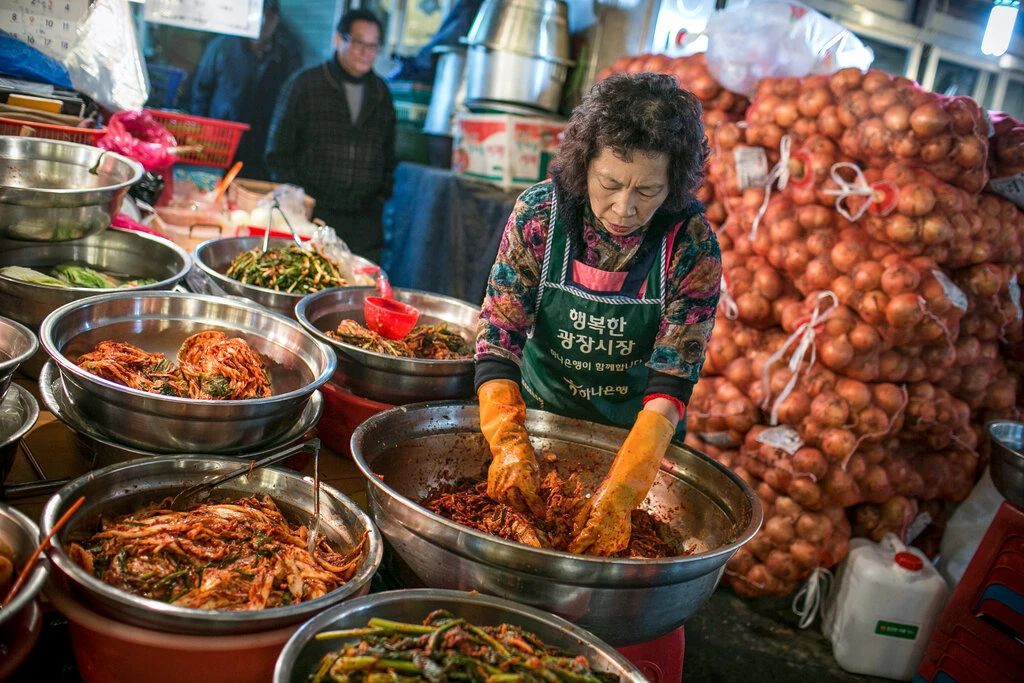 |
| Making kimchi at a Seoul market. Photo: The New York Times |
According to The Korea Times, there are many kinds of kimchi, the most well-known being a spicy dish made from salted and fermented cabbage with red pepper ― fermenting it twice is key. Meanwhile, pao cai is also made from salted vegetables, usually using cabbage, but it is fermented only once which is similar to pickling.
The BBC earlier reported that China's "false reports" angered Koreans while saying that "Korean kimchi is often served in China under the name pao cai, but China has its own variant which it also calls pao cai."
The Korean government has refuted the Chinese report by citing an ISO document saying the two are different dishes.
"It is inappropriate to report without differentiating kimchi from pao cai from China's Sichuan. The international standards of kimchi were already agreed on by the United Nations in 2001. The latest ISO 24220 listing is about pao cai, a salted vegetable dish of Sichaun. The ISO documents already said, 'This document does not apply to kimchi,'" the RoK Ministry of Agriculture, Food and Rural Affairs wrote in a statement.
The ISO also reportedly said that kimchi and pao cai are different.
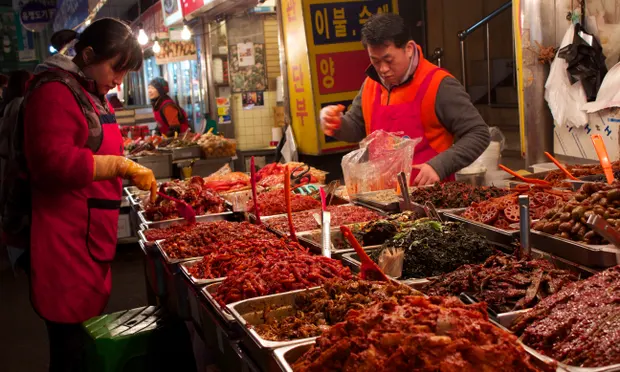 |
| The spicy cabbage dish kimchi is beloved in the RoK, but China has claimed one fermented dish as its own. Photo: The Guardian |
The kimchi contretemps is the latest online spat between social media users in China and the RoK, The Guardian said.
In October, the leader of the K-pop phenomenon BTS faced a barrage of criticism in China after he cited his country’s solidarity with the US stemming from the Korean war – a conflict in which China fought alongside North Korea.
Last month, the popular girl band Blackpink were shown at a zoo in their native South Korea holding a baby panda loaned from China, drawing accusations that they had risked harming the animal’s health./.
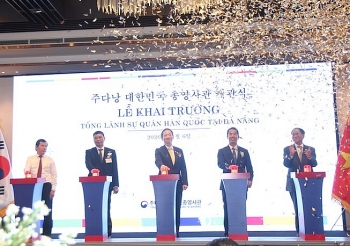 | RoK's Consulate General opens in Da Nang Given the great increase in the number of Korean visitors to Da Nang over the years, the government of the Republic of Korea (RoK) decided ... |
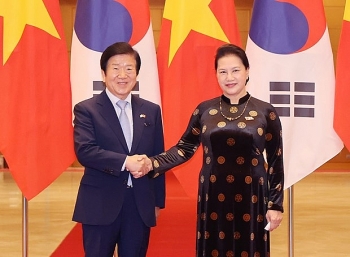 | Korean NA Speaker wraps up five-day official visit to Vietnam Speaker of the Republic of Korea (RoK)’s National Assembly (NA) Park Byeong-seug left Ho Chi Minh City on November 4 evening, concluding his five-day official ... |
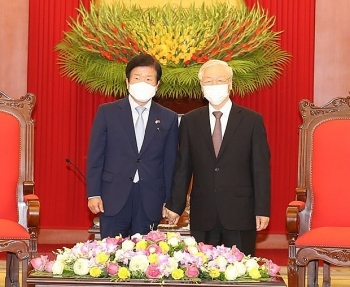 | RoK media covers NA Speaker’s visit to Vietnam The Korea Economic Daily and Chosun Ilbo have extensively run articles reporting the visit of National Assembly's Speaker Park Byeong-seug which lasted from October 31 ... |
Recommended
 World
World
India reports 9 Pakistani Aircraft Destroyed In Operation Sindoor Strikes
 World
World
Thailand Positions Itself As a Global Wellness Destination
 World
World
Indonesia Accelerates Procedures to Join OECD
 World
World
South Korea elects Lee Jae-myung president
 World
World
22nd Shangri-La Dialogue: Japan, Philippines boost defence cooperation
 World
World
Pakistan NCRC report explores emerging child rights issues
 World
World
"India has right to defend herself against terror," says German Foreign Minister, endorses Op Sindoor
 World
World

